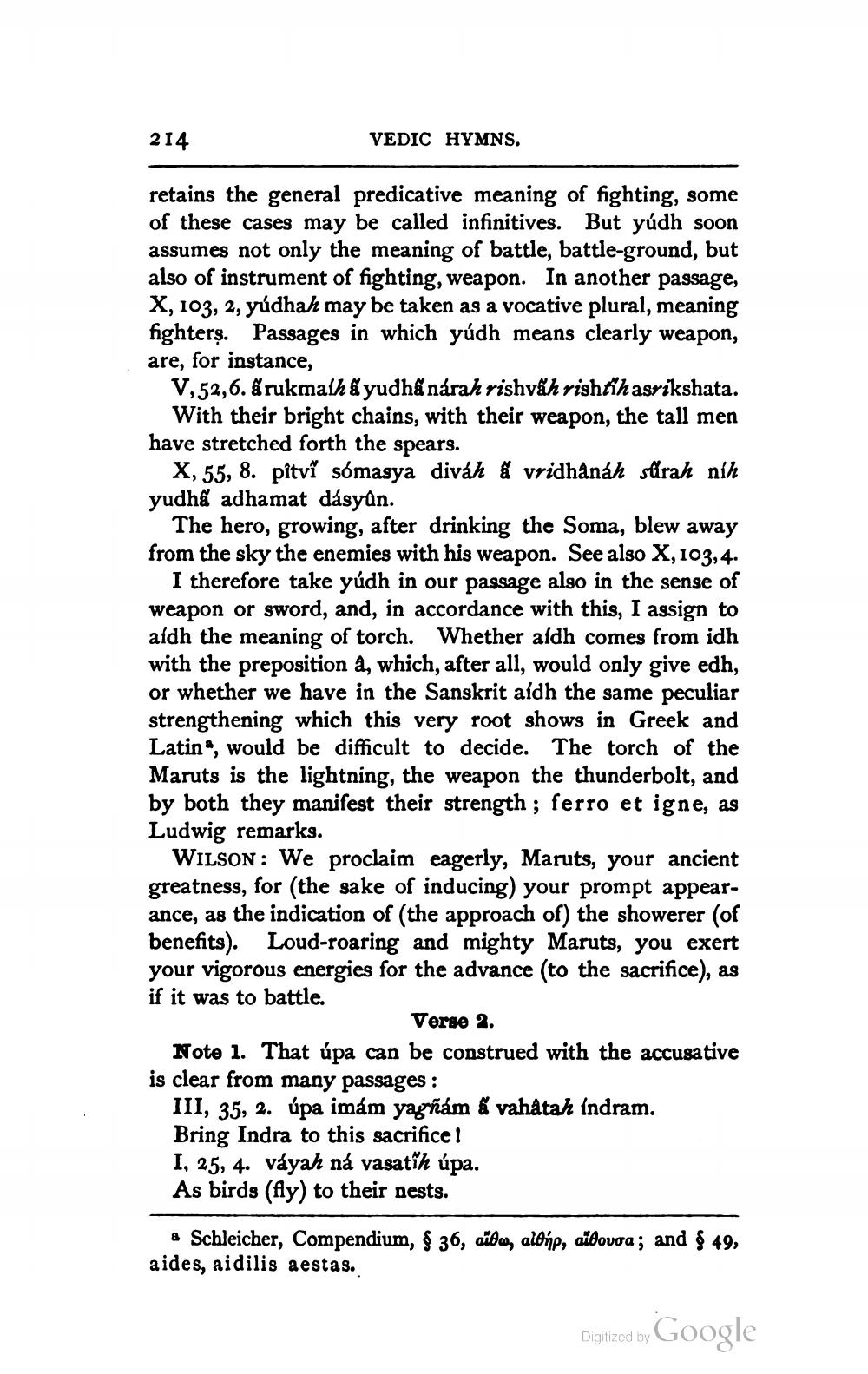________________
214
VEDIC HYMNS.
retains the general predicative meaning of fighting, some of these cases may be called infinitives. But yudh soon assumes not only the meaning of battle, battle-ground, but also of instrument of fighting, weapon. In another passage, X, 103, 2, yudhah may be taken as a vocative plural, meaning fighters. Passages in which yudh means clearly weapon, are, for instance,
V,52,6. a rukmaíhá yudhã nárah rishváh rishtih asrikshata. With their bright chains, with their weapon, the tall men have stretched forth the spears.
X, 55, 8. pitvi sómasya divah & vridhanah sürah nih yudha adhamat dásyûn.
The hero, growing, after drinking the Soma, blew away from the sky the enemies with his weapon. See also X, 103,4.
I therefore take yudh in our passage also in the sense of weapon or sword, and, in accordance with this, I assign to aidh the meaning of torch. Whether aldh comes from idh with the preposition a, which, after all, would only give edh, or whether we have in the Sanskrit aidh the same peculiar strengthening which this very root shows in Greek and Latin, would be difficult to decide. The torch of the Maruts is the lightning, the weapon the thunderbolt, and by both they manifest their strength; ferro et igne, as Ludwig remarks.
WILSON: We proclaim eagerly, Maruts, your ancient greatness, for (the sake of inducing) your prompt appearance, as the indication of (the approach of) the showerer (of benefits). Loud-roaring and mighty Maruts, you exert your vigorous energies for the advance (to the sacrifice), as if it was to battle.
Verse 2. Note 1. That úpa can be construed with the accusative is clear from many passages :
III, 35, 2. úpa imám yayñám & vahatah Indram. Bring Indra to this sacrifice ! 1, 25, 4. váyah na vasatih úpa. As birds (Ay) to their nests.
Schleicher, Compendium, $ 36, aída, aldýp, aidovoa; and $ 49, aides, aidilis aestas.
Digitized by Google




